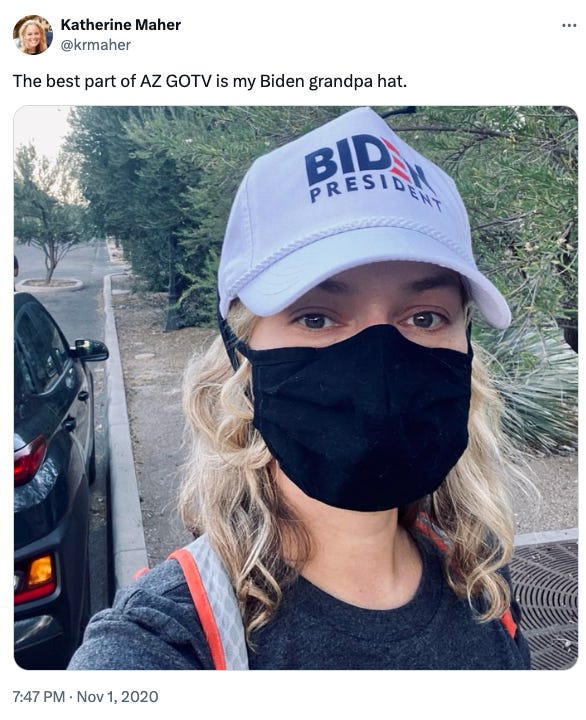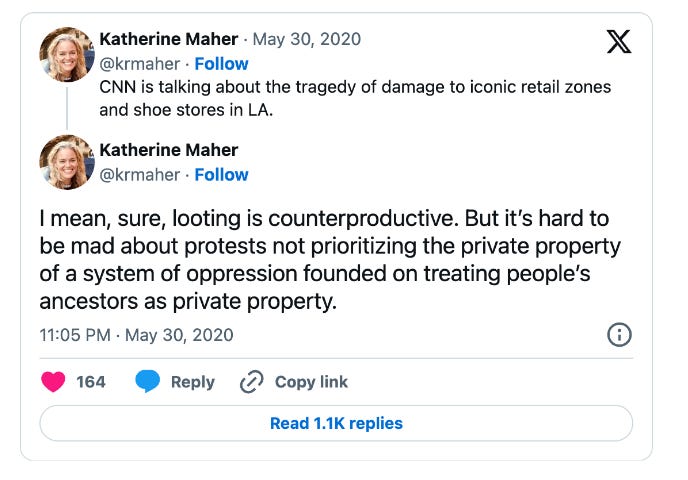Uri Berliner, a senior editor at NPR, should have known better.
In a scathing essay published last week in The Free Press, Berliner pulled back the curtain on NPR's newsroom. He revealed how the broadcaster has lost its way, abandoning objective journalism in favor of pushing a "progressive worldview" that caters to a narrow slice of elite, left-leaning America.
It was no surprise to any of us, but Berliner's essay was a breath of fresh air, a rare moment of honesty from inside the mainstream media bubble. He called out NPR's slanted coverage of major stories like the Trump-Russia investigation, Hunter Biden's laptop, and the origins of COVID-19. He went after the newsroom's myopic obsession with race and identity politics.
He wrote things like, “There’s an unspoken consensus about the stories we should pursue and how they should be framed. It’s frictionless—one story after another about instances of supposed racism, transphobia, signs of the climate apocalypse, Israel doing something bad, and the dire threat of Republican policies. It’s almost like an assembly line.”
Unfortunately for Berliner, this is his boss, the CEO of NPR …
Let’s not completely judge Ms. Maher by her hat, but take a look at her words instead. Here’s a sampling of her Twitter life, where she unironically labels herself a “boss lady”:
“White silence is complicity. If you are white, today is the day to start a conversation in your community.”
On Trump: “What is that deranged racist sociopath ranting about today? I truly do not understand."
“America is addicted to white supremacy and that’s the real issue.”
Finally, perhaps my favorite: as people were being killed and thousands of businesses burned during the 2020 riots, she was sympathizing with the protestors “not prioritizing the private property of a system of oppression.”
It should come as no surprise that Berliner has been punished, given an unpaid suspension by NPR. They claim he violated policy by publishing his essay without approval, and that may be true. But his real crime was speaking about NPR's biases aloud, and the higher-ups can’t handle the truth.
Conservatives have long seen NPR’s liberal bias, and Berliner's essay confirms what we already knew. This is an organization that has lost touch with half the country. They sneer at red state values while taking their tax dollars.
So what about that public funding? NPR likes to downplay it with Clintonian word games. From their website: “On average, less than 1% of NPR's annual operating budget comes in the form of grants from [the Corporation for Public Broadcasting] and federal agencies and departments.”
Think about that for a second. If less than 1% of their budget comes from the government, they could easily trim that budget and, like Huffpo or MSNBC, do their own thing.
In reality, there’s a whole lot of indirect funding going on which kicks up the government share to a substantial portion of their $300 million budget. (FYI, if a Republican presidential candidate did the same thing, a progressive prosecutor would undoubtedly file felony charges of money laundering.)
Sooner or later, NPR will have to reckon with the half of America it has systematically ignored and belittled. They don’t care about ratings, but eventually, conservative lawmakers will tire of funding their opposition.
If NPR wants to be a mouthpiece for the far-left, fine. But don't expect us to foot the bill.
– Ken







As they say, the truth hurts. NPR is being forced to look in the mirror but, in the end, will likely just cover-up the reflection and go on as usual.
He just resigned. "I am resigning from NPR, a great American institution where I have worked for 25 years. I don't support calls to defund NPR. I respect the integrity of my colleagues and wish for NPR to thrive and do important journalism. But I cannot work in a newsroom where I am disparaged by a new CEO whose divisive views confirm the very problems at NPR I cite in my Free Press essay."
His piece had some problems (especially not seeking a response from NPR) but the overall point about lack of viewpoint diversity was valid. I've noticed NPR get more liberal since Trump was elected. I suppose that reflects the polarization that happened to the whole country under his watch, but that doesn't make it good. I've been tuning in mostly for the (still excellent) arts coverage and avoiding the political news.
NPR needs fixing, and as conservatives have argued persuasively about the police, you DON'T fix an institution by defunding it. Exactly how to fix it is above my pay grade, but at the executive level and among the rank and file there needs to be more humility, curiosity, open-mindedness and willingness to follow the truth wherever it leads. All the hallmarks of old-fashioned journalism.
Sadly, a lot of people who are criticizing NPR and calling for its defunding are the LEAST likely to support independent, unbiased journalism and the MOST likely to support partisan outlets that reinforce their own worldview -- the same sin they're accusing NPR of. That Bible verse about the splinter in your brother's eye comes to mind...